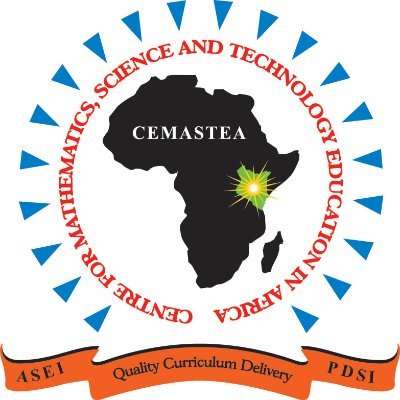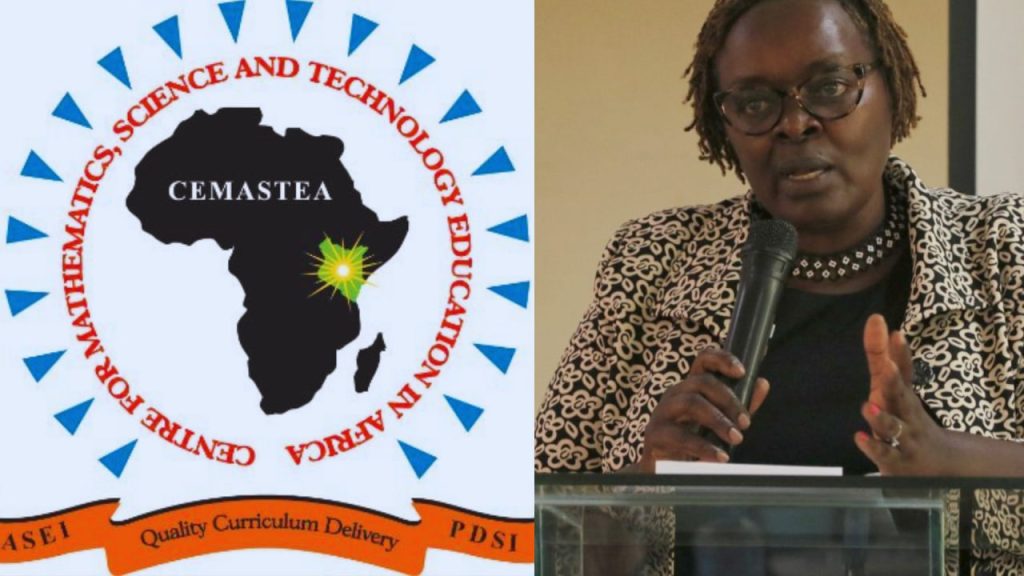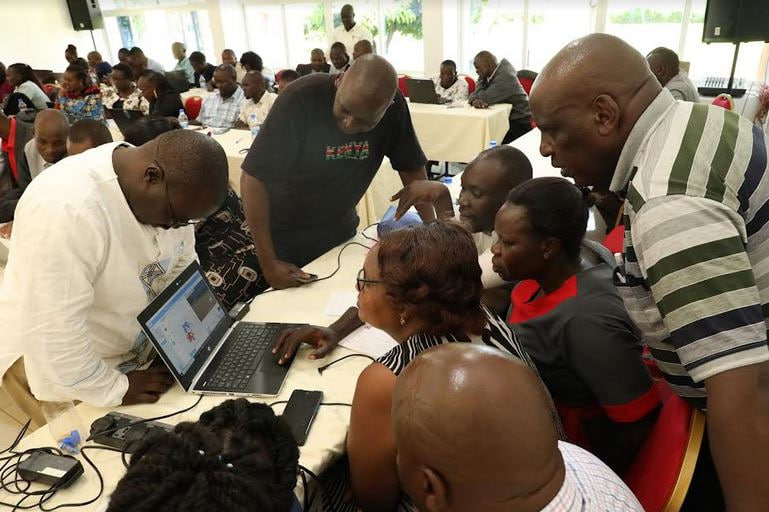CEMASTEA Trains 9,595 Teachers on Inquiry-Based Learning (IBL)
Approximately 9,595 teachers are undergoing a training course on the expectations of the ongoing school curriculum reforms, which highlight the acquisition of abilities necessary for success in the twenty-first-century workplace.
Ms. Beatrice Macharia, Coordinator of Special Programmes and Student Learning at the Centre for Mathematics, Science, and Technology, Education in Africa (CEMASTEA), which is facilitating the courses, stated that the program, which is being held during the April holidays, is aimed at junior secondary school teachers from 47 countries who are assigned to teach pre-technical studies, agriculture, and nutrition.
The trainings are taking place in Nakuru, Machakos, and Kisumu counties.
Ms. Macharia explained that the teachers were being guided through the principles of inquiry-based learning (IBL), in which students gain knowledge by questioning and investigating information received from their teachers rather than accepting facts without question, as has been the case in the past.
“The method places students’ questions, ideas, and observations at the center of the learning experience to enhance the teachers’ pedagogical content knowledge and inspire learners to pursue Science, Technology, Engineering, and Mathematics (STEM)-related disciplines key to helping the country achieve Vision 2030,” she went on to say.
While revealing that CEMASTEA trained 7,380 mathematics and integrated science teachers on pedagogical content knowledge in December of last year, the coordinator stated that IBL allowed students to engage in authentic investigations in which they identified problems, asked questions, proposed solutions, made predictions, designed procedures, collected and organized data, and drew conclusions.
Ms. Macharia, speaking in Nakuru at the launch of a training program for junior school teachers of pre-technical studies, agriculture, and nutrition from 15 counties, explained that the IBL model requires teachers to create a classroom culture in which ideas are respectfully challenged, tested, refined, and improved.
“The culture in the classroom should allow learners to shift from a position of wondering to one of understanding and questioning,” she said.
Specially trained facilitators provided sample lessons on the features of the new curriculum’s instructional paradigm, which ensures that learning occurs through engagement, discovery, explanation, elaboration, and evaluation.
Teachers received training on how to motivate students, spark their interest in the lessons, discover what they already know or believe about the subject, and pose challenging questions that elicit thoughtful answers from their students.
The master trainers described the session’s purpose, objectives, goals, and expected outcomes. The master trainers advised teachers to approach IBL as a methodical process, starting with framing the research and establishing the questions to answer.
They stated that the final stage of the IBL was to reflect on the inquiry activity before engaging in further inquiries.
Ms. Macharia stated that Science, Technology, Engineering, and Mathematics (STEM) subjects were the foundation of technology, and that continual teacher training for the new curriculum was “very important” in the new educational order sweeping the continent.
The Western Regional Director of Education, Mr. Jared Obiero, who was the keynote speaker, stated that by embracing digital devices and connected learning, classrooms across the country and around the world can not only connect to share insights but also improve learning, experience, and communication skills.

He believes that public-private partnerships may help Kenya realize the promise of digital learning by offering high-quality, low-cost computer systems as well as digital access to content, textbooks, videos, audio, and training materials in both private and public schools.
Mr. Obiero praised the CBC technique as a step in the right direction toward the country’s industrialization goals.
He claimed that the training exercise is designed to provide junior secondary school teachers with the skills they need to deal with shifting trends and class management as the school system transitions completely to a competency-based curriculum.
“The new curriculum requires innovative human capacity, and revitalizing the teaching profession will ensure quality, equity, and relevance at all levels of education,” the director stated.
He continued, “Among the retooling features is the movement of the school system to remote learning via digital apps.” The technology will improve teaching and learning with their pupils as well as provide capabilities to increase teacher-learner engagement.
Mr. Obiero stressed the importance of using learner-centered practices in technology learning to improve mathematical and scientific comprehension.
He claimed that research and innovation have revolutionized technology.
He continued, “The future is a digital world, and our education must adapt accordingly lest we fall behind.”
Mr. Obiero pointed out that the African Union has approved Agenda 2063, which calls for a “revolution” in education, skills, and the active promotion of science, technology, research, and innovation. He addressed 96 county trainers from 15 different counties, who were undergoing training in pedagogical content understanding.
The counties were Baringo, Kisumu, Elgeyo Marakwet, Nyandarua, Laikipia, Kakakmega, Narok, and Kirinyaga. Others were Samburu, West Pokot, Machakos, Embu, Nairobi, and Nyeri.
He stated that the success of Vision 2030 was entirely dependent on science, technology, and innovation, all of which are necessary ingredients for a country’s economic and technical growth in the modern world.
Teachers will also be trained in project-based learning (PBL), ICT integration, and inquiry-based learning, all of which are aligned with ongoing curriculum reforms aimed at giving students hands-on experience with science and developing competencies for the 21st-century workplace.
Mr. Obiero emphasized that a concept-based curriculum, such as CBC, should rely on the teacher’s creativity, technical, and pedagogical latitude to create more engaging learning experiences that will help students grasp concepts or skills better.
“As such, the teacher must play a central role in the CBC model.” The teacher should be better prepared to communicate this. Teachers must be well-versed in the overall notion of CBC,” he remarked.
The Chief Executive Officer (CEO) of CEMASTEA, Mrs. Jacinta Akatsa, stated that the CBC curriculum expects teachers to use a variety of teaching strategies and resources that involve the learner, and expects learners to be active and responsive during lessons to construct knowledge, skills, and attitudes.
In a speech read on her behalf by CEMASTEA Management Representative (MR) and Coordinator Field Services, Ms. Gladys Masai, the CEO stated that the training was designed to address teaching and learning gaps observed in schools in terms of interpreting CBC designs for grade 8 and implementing learner-centered practices.

The CEO continued by stating that teachers are receiving training on how to develop innovative lessons that incorporate ICT, enhance professional growth through the implementation of communities of practice and pedagogical content knowledge, rationalize the curriculum, and integrate mentorship and career guidance.
Mr. Livingstone Makanda, the Coordinator Programme of Junior School and Secondary at CEMASTEA, stated that the teacher’s role should shift from that of an expert transferring knowledge to that of a coach, supporting and leading the learning process.
A competency-based curriculum develops skills rather than teaches them. The learner is always the primary actor in their skill development. Role plays, problem-solving, projects, case studies, simulation, discussion, and outdoor activities are examples of learner-centered teaching methodologies proposed for the implementation of competence-based curriculum in schools.
Mr. Makanda stated that the program intended to improve teacher quality in terms of attitude, pedagogy, content mastery, resource mobilization, and the use of locally accessible teaching resources.
He stated that, in addition to improved teacher and student performance, the benefits of IBL included the development of student passion and talents, solving tomorrow’s problems in today’s classrooms, allowing students to take ownership of their learning to achieve their goals, deepening understanding beyond memorizing facts and content, and reinforcing the importance of answering questions.
“In addition, the strategy makes research more meaningful while encouraging curiosity and a love of learning.” It is an open-ended line of learning guided by students’ questions to their teachers,” he said.
Mr. Makanda noted that Sustainable Development Goal 4 argues for excellent and equitable education by 2030, and boosting teacher quality is a necessity for achieving this goal.
He highlighted that the country’s education system is now changing to increase the human capital index and quality of life.
Kenya has made progress in delivering quality education, which is not only a constitutional right but also driven by the Sustainable Development Goal 4 (SDG), which calls for inclusive and equitable education that fosters lifelong learning opportunities for all.
In Our Other News: MPs Oppose School Fees Payment via E-Citizen Platform
“Every country is looking forward to responding to the demands of the 21st century, which requires innovative human capacity, and revitalizing the teaching profession will ensure quality, equity, and relevance at all levels of education.”
Mr. Makanda emphasized the importance of teachers being well-versed in the evolving trends in teaching and class management, while also instilling a tech-friendly paradigm, as it is impossible to separate technology from education.
He stated that in a world where the school system is transitioning to remote learning and with so many digital apps developing and becoming popular, teachers should have greater access to them.
CEMASTEA trains 9,595 teachers on inquiry-based learning (IBL).


Discussion about this post